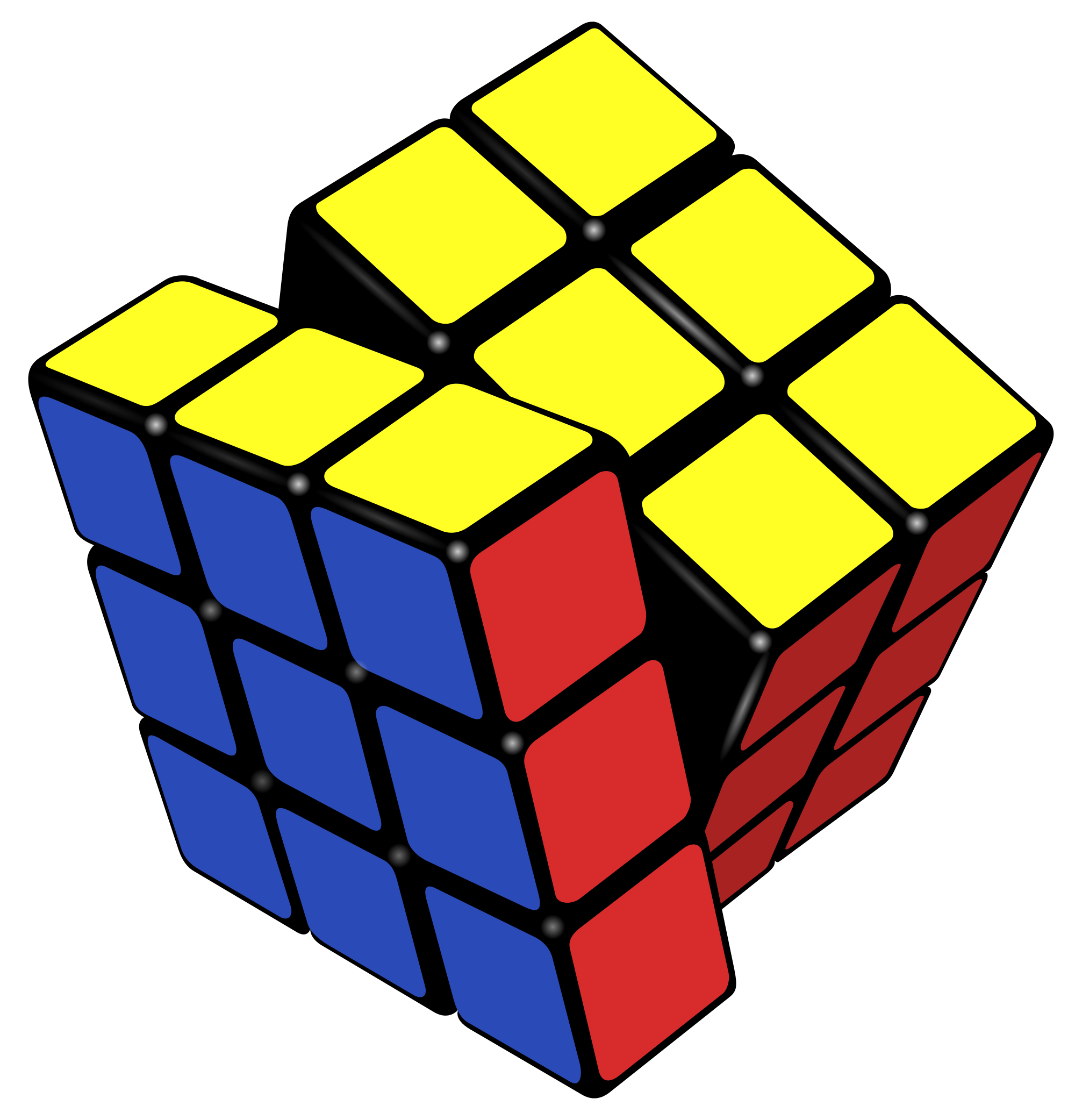This is a general discussion thread. Anything is welcome!
Any exciting plans for the week? Any new PBs? New interesting puzzles?
I picked up cubing half a year ago, and set myself a goal of getting to sub-30. I just learned the last PLL algorithms today and now working on getting them into muscle memory. I’m averaging around 45s now, with my PR in the mid 30s.
I’m not looking forward to full OLL. If I’m ever going to do that.
I’ve been cubing for years, average around 15s, and still don’t know full OLL haha. I’m getting there, very slowly
Damn. I think just recognizing and remembering PLLs is hard enough. It must be crazy with more than twice as many.
I think I’ll focus on improving F2L instead 😄
PLL is not too bad. To be fair, I’ve never really focused on learning PLLs or OLLs. I usually just learn 1 or 2 to get used to them, and then just practiced other things for weeks/months. So I was always slow in learning new algs.
Hi all… I’m old (42), and achieved the life goal of learning to solve a cube. Then I got a 2x2, 4x4, and a 5x5 front the wife for mother’s day. Got them fairly figured out (haven’t memorized the 4x4 parity algs, I’ll admit).
Trying to figure out what’s next. Getting fast w a 3x3 is probably it…
Funny thing is that I used to cube to wean off of reddit when they killed third party apps, so that’s why I’m here.
If I get a speed cube (looking at an RS3 M 2020), should I be concerned with things like lubes at this point, or should I just get one and go?
RS3M is a great choice! I guess depending on where you’re buying your cube from, I’d suggest just buying lube anyway, but I don’t think you need to get too much into it. There are different lubes for core vs pieces and many different types/feels but I think just buy one for the pieces that can make it feel smoother. That’s a huge, quick help in making your cube feel better.
Hi all… I’m old (42), and achieved the life goal of learning to solve a cube. Then I got a 2x2, 4x4, and a 5x5 front the wife for mother’s day. Got them fairly figured out (haven’t memorized the 4x4 parity algs, I’ll admit).
Hi. Welcome!
I’m about the same age, but I’ve this achievement unlocked since my 20s. Fast-forward 10 years later where I took interest in the cube again.
Trying to figure out what’s next. Getting fast w a 3x3 is probably it…
That’s one way you can take (Sub-60 sub-45 and sub-30 are quite reasonable goals for us oldies). Then there is other exponents (but you have already begun. Then other “WCA cubes” like pyraminx, skewb, square-1… Then other weird cubes (cuboid, bandaged…). And you can also explore different methods, blind (that’s not really that hard if you don’t expect a sub-60 solve, but rather expect to solve a cube blind (~5 to 7min for a total beginner like me), FMC… That’s what I love with
cubestwisty puzzles. There is so many way to play with it.If I get a speed cube (looking at an RS3 M 2020), should I be concerned with things like lubes at this point, or should I just get one and go?
I don’t have any and don’t think that it will change a lot of my cubing experience/times if I have a well-lubed cube. But it’s relatively cheap so if you think you’ll become “serious” about cubing, yes!
I started learning 3-Style and I made my own tool to parse Jack Cai’s sheets and create flashcards for the algorithms. I even made it generate the algorithms that Jack Cai marked as “inverse of …” by inverting said algorithm. Since it’s best to start with pure commutators, I made the tool replace all appearances of pure commutators other algs with the pair name. I think it’s very useful, much more intuitive and makes learning much faster. Hopefully I’m able to learn all of 3-Style before uni break ends.
(Btw: I posted on the last discussion thread but it doesn’t seem to show up. I hope this one does)
I made my own tool to parse Jack Cai’s sheets and create flashcards for the algorithms. I even made it generate the algorithms that Jack Cai marked as “inverse of …” by inverting said algorithm.
Nice! Will you publish your tool?
I learned OP/M2, and managed some 4-5minute solves. Even though I understand commutator and most 3style algs, it’s too much algs for me.
Keep us posted on your progress!
Nice! Will you publish your tool?
Probably! But I’m still trying to figure out how to organize it all. I also discovered more algorithm sheets (probably should have started by doing that research before parsing Jack Cai’s sheet). I’m trying to make it as general purpose as possible and also trying not to confuse myself while learning.
Also it’s hard to reason about the best way to learn when I don’t know much yet (which leads to me implementing some interesting YAGNI), but I’ll update the tool as I go and maybe when I’m done/happy enough I’ll publish it. It’s all in Python though (to deal with the sheets via Pandas) and I think it’s not ideal because most cubers prefer online webapps AFAIK.
Oh is it a Python app that you run locally?
Yup exactly
Sounds fun. I still don’t completely understand commutators so I never learned 3-Style. What method did you use before and what were your times?
(Btw: I posted on the last discussion thread but it doesn’t seem to show up. I hope this one does)
Strange. We did have a lot of issues at lemmy.world yesterday so maybe your post got caught up in that.
Sounds fun. I still don’t completely understand commutators so I never learned 3-Style. What method did you use before and what were your times?
My PB is 3:07 with M2/OP. I’m going against the usual recommendation of “practice a lot of memo before learning 3-Style” but I’ve also read a few comments against doing that saying to just start with 3-Style immediately. Also knowing full 3-Style just sounds amazing.
Do you do BLD too? What are your times and method?
I don’t do BLD. I learned it once a while back because I wanted to get an official time, and I managed to get a ~7 minute time at a comp. Since then I’ve never really practiced. I did OP I believe. I looked up 3-Style because I thought it was interesting but haven’t spent any time on it, or on understanding commutators.
I still don’t completely understand commutators
Some algs can be scary, but the mathematical principle is really easy: if you do X, and then X’ the cube is back to its solve state. When there is a face where there is only a tiny bit of change, let’s say a corner twist, if you turn that face after X, by doing X’ you will solve the rest of the cube, and instead of twisting the same corner, you’ll twist the corner that is where the twisted corner was.
An example of corner twisting.
An exemple of corner swapping
An explanation where it ticked for me: https://www.ryanheise.com/cube/commutators.html
If you are more a video person.
Doing non-wca twisty puzzle, commutators are a must.


